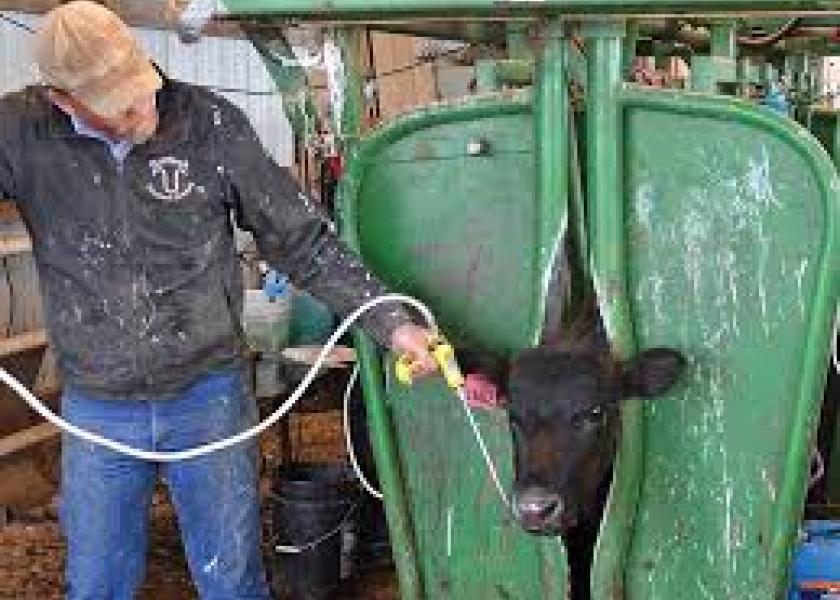FDA Calls for New Labeling to Protect Effectiveness of Dewormers

The U.S. Food and Drug Administration announced this week that it has requested that animal drug companies voluntarily revise the labels of drugs intended to treat certain internal parasites in livestock and horses to add information about antiparasitic resistance. This move comes as a result of the agency’s work with veterinary parasitology experts and the animal health community to find ways to maintain the effectiveness of these drugs. The requested labeling changes are for approved antiparasitic animal drug products only, and do not relate to antimicrobial drug products or antimicrobial resistance.
The requested labeling changes specifically affect anthelmintics for livestock (cattle, sheep, goats, poultry, and swine) and horses. Anthelmintics, often called dewormers, are animal drugs that treat helminths. Helminth refers to several groups of internal parasites, often called worms, that have some similarities. Tapeworms and roundworms are common types of helminths. Helminths are becoming increasingly resistant to drugs that were generally effective against them in the past. In these situations, after an animal is treated with a dewormer, the susceptible worms die and the resistant worms survive to pass on resistance genes to their offspring.
Although antiparasitic resistance in livestock and horses does not directly affect human health in the U.S., it is a growing animal health threat in this country. Heavy worm infections can cause diarrhea, weight loss, anemia (decreased level of red blood cells), and death. Antiparasitic resistance is particularly concerning in grazing species (cattle, sheep, goats, and horses), but is also a problem in swine and poultry.
The new labeling information emphasizes these important points:
- Any use of a dewormer can result in the development of antiparasitic resistance.
- Proper dosing is critical to the safe and effective use of a dewormer.
- End-users should work with their veterinarian to monitor herds and flocks to determine the extent of antiparasitic resistance on a particular farm.
- Dewormers should be used as only one part of an overall internal parasite control program.
The FDA also reminds veterinarians, livestock producers, and animal owners about antiparasitic resistance and the importance of developing an overall parasite control program to slow resistance to dewormers. Veterinarians, livestock producers, and animal owners may not be aware of the threat of antiparasitic resistance or ways to slow it down. The new labeling information will help them better understand the proper use of dewormers and ways to monitor and slow down the development of antiparasitic resistance at the farm level.
The new labeling information does not replace the need to work with a veterinarian to determine appropriate parasite management strategies for individual animals or herds or flocks. Rather, the new language focuses on how to properly incorporate dewormers into an overall parasite control program and how to slow down the development of antiparasitic resistance. Slowing the development of resistance extends the effectiveness of dewormers and better protects animal health in the long term.
Because grazing animals are continually exposed to worm eggs on the pasture, they can have repeated parasite infections. Although most swine and poultry in the U.S. are not raised on pasture, the number of these animals being pasture-raised is growing. This increases their chances of being repeatedly exposed to worms which may then become resistant to dewormers. The FDA is aware that management practices and production schemes for swine and poultry differ from those in grazing species, and the new labeling information will reflect these differences.
The FDA is requesting that drug companies add information about antiparasitic resistance to both over-the-counter (OTC) and prescription dewormers. Some approved dewormers for livestock and horses are prescription only, but most are OTC. For a product to be approved as OTC, the label must have adequate directions for use that are written in such a way that a non-veterinarian can use the drug safely and effectively. Including information about resistance on the label of OTC dewormers is important for communicating adequate directions for use to non-veterinarians. More detailed information about the proper use of OTC dewormers and ways to monitor resistance will help livestock producers and animal owners use these products safely and effectively.
The FDA is requesting that drug companies include this information on the labels of their currently marketed FDA-approved dewormers for livestock and horses within the next 12 months, and on labels for any new dewormer that FDA approves for use in these animals.
Parasite Control: Kill most, protect some
Manage against drug resistance







